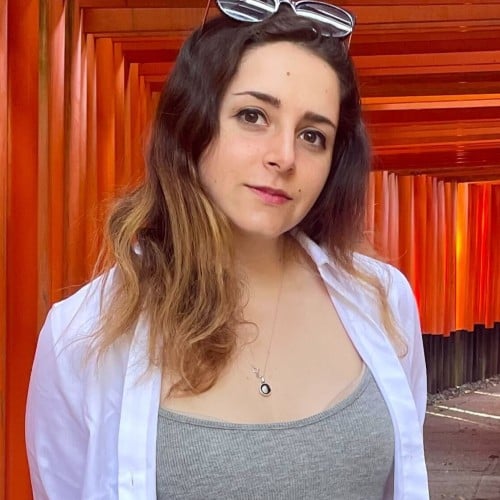
Celebrations beyond Christmas: 5 other December traditions around the world, from Bodhi Day to Japan’s Omisoka
- While Santa Claus and reindeer capture their fair share of attention, there are a host of other celebrations taking place during this month
- For example, there is Hanukkah, the Jewish festival of lights, and Omisoka, the Japanese holiday on the last day of the year
 The last month of the year is a festive period. Photo: Shutterstock
The last month of the year is a festive period. Photo: Shutterstock If you step onto the streets of Hong Kong during the month of December, you are guaranteed to see Christmas decorations all around. Decorated evergreen trees sit in shops, wreaths and holly adorn windows and walkways, and holiday messages light up the night sky to spread cheer. While Christmas appears to be the dominant holiday during the winter season, there are plenty of other celebrations during this month.
Chinese New Year: The different days of the new year and what each of them mean
1. Hanukkah (December 7 to 15)
Hanukkah (also spelled Chanukah or Chanukkah) is the Jewish festival of lights. While the holiday falls on different days each year, it usually takes place in late November or December and lasts eight consecutive days. In Hebrew, Hanukkah translates to “dedication”.
Hanukkah commemorates a story that is said to have happened in the second century BC when the Seleucid Empire tried to force the Jewish people to adopt Greek traditions and beliefs. Despite being poorly armed, a small group of Jews defied the king’s order and protected their temple. When they went to light the lamps at the Holy Temple in Jerusalem, they only found one day’s worth of oil. But as the miracle goes, the oil lasted eight full days, which is why Hanukkah is an eight-day holiday.
Hanukkah is celebrated with special prayers and foods, and each night involves a candle lighting ceremony with a menorah, which is a special type of candelabra. The menorah can hold nine flames, one of which is used to light the other candles. The menorah is typically placed in a window or doorway.
Since the miracle involved oil, Jews traditionally eat foods fried in oil for Hanukkah.
2. Bodhi Day (December 8)
In Buddhism, Bodhi Day celebrates the day that the Buddha reached enlightenment under a peepal tree, after years of extreme ascetic practices. “Bodhi” means “to awaken”.
The holiday is primarily celebrated in Japan, South Korea and Vietnam. Buddhists pray and read scriptures – called sutras – and some will adorn trees with candles and lights in honour of Buddha’s enlightenment. It’s also common to practise acts of kindness. Since it is believed that the Buddha ate rice and milk in the final days leading up to his enlightenment, some will mimic these actions on the holiday.
Even though this celebration has already passed on the Gregorian calendar, some people also celebrate it based on the lunar calendar. Bodhi Day will fall on January 18, 2024, according to the lunar calendar.
3. Festival of Yule (December 21 to January 1)
Yule is a Pagan tradition celebrated during the winter solstice, which is December 21. The holiday dates back to the fifth century, as a midwinter festival, when Germanic people prepared for the harsh months ahead.
An annual Yule tradition involves the Yule Log, which is burned for warmth and light on the darkest day of the year. Even better, there’s a dessert called the Yule Log, which is a sponge cake similar to a Swiss roll.
4. Kwanzaa (December 26 to January 1)
Kwanzaa is a holiday primarily celebrated in the US, honouring African-American and Pan-African culture and heritage. During the week of festivities, friends and family share feasts, give thanks and exchange gifts.
Kwanzaa holds seven core values: unity, self-determination, collective work and responsibility, cooperative economics, purpose, creativity and faith.
Homes are often decorated in symbols honouring traditional African heritage. Like Hanukkah, there is a candle lighting ceremony during Kwanzaa, but instead of a menorah, they use a kinara, which has seven candles – one black in the centre, three red on the left and three green on the right. The red candles represent the past, while the green symbolises the future. The black candle marks the unity among people of African descent.
5. Omisoka (December 31)
With origins dating back to the Edo Period (1603-1868), Omisoka is a Japanese celebration of the last day of the year.
As midnight approaches, Buddhist temples across the country usher in the new year with monks striking the bells 108 times, following the belief that humans must overcome 108 earthly passions to reach enlightenment.
It is also customary to eat buckwheat noodles on Omisoka, which is thought to be a lucky and healthy way to start the new year. Conversely, those who do not finish all of their noodles would be doomed to have bad luck with money the following year.
Family members usually return home for the holiday, and all preparations for the new year, including chores and cleaning, should be completed by Omisoka.
